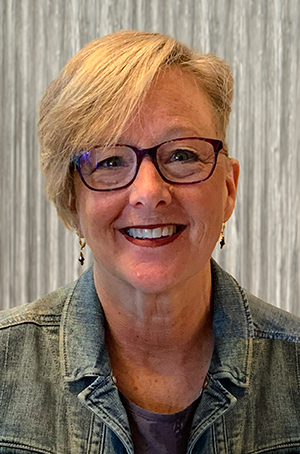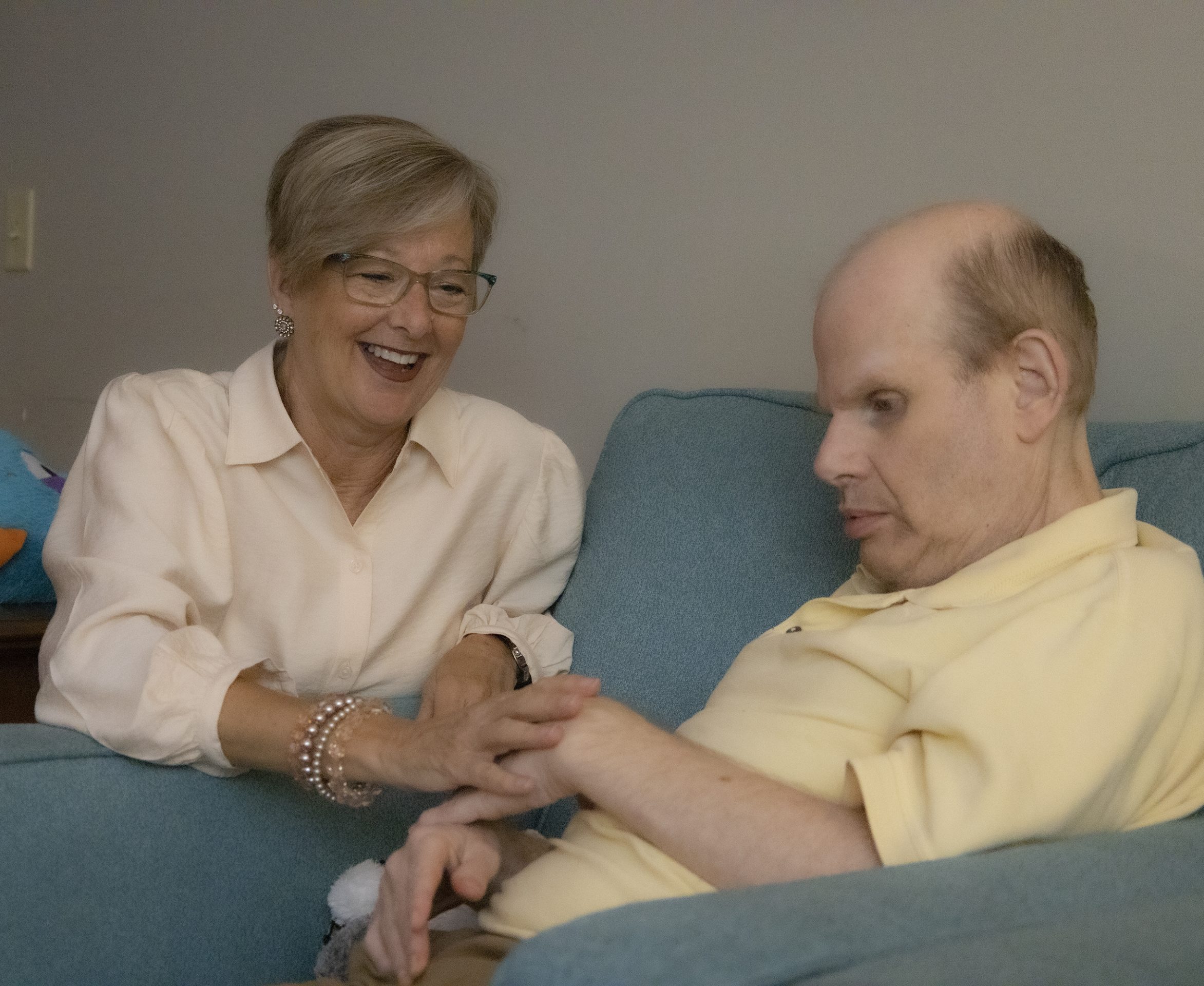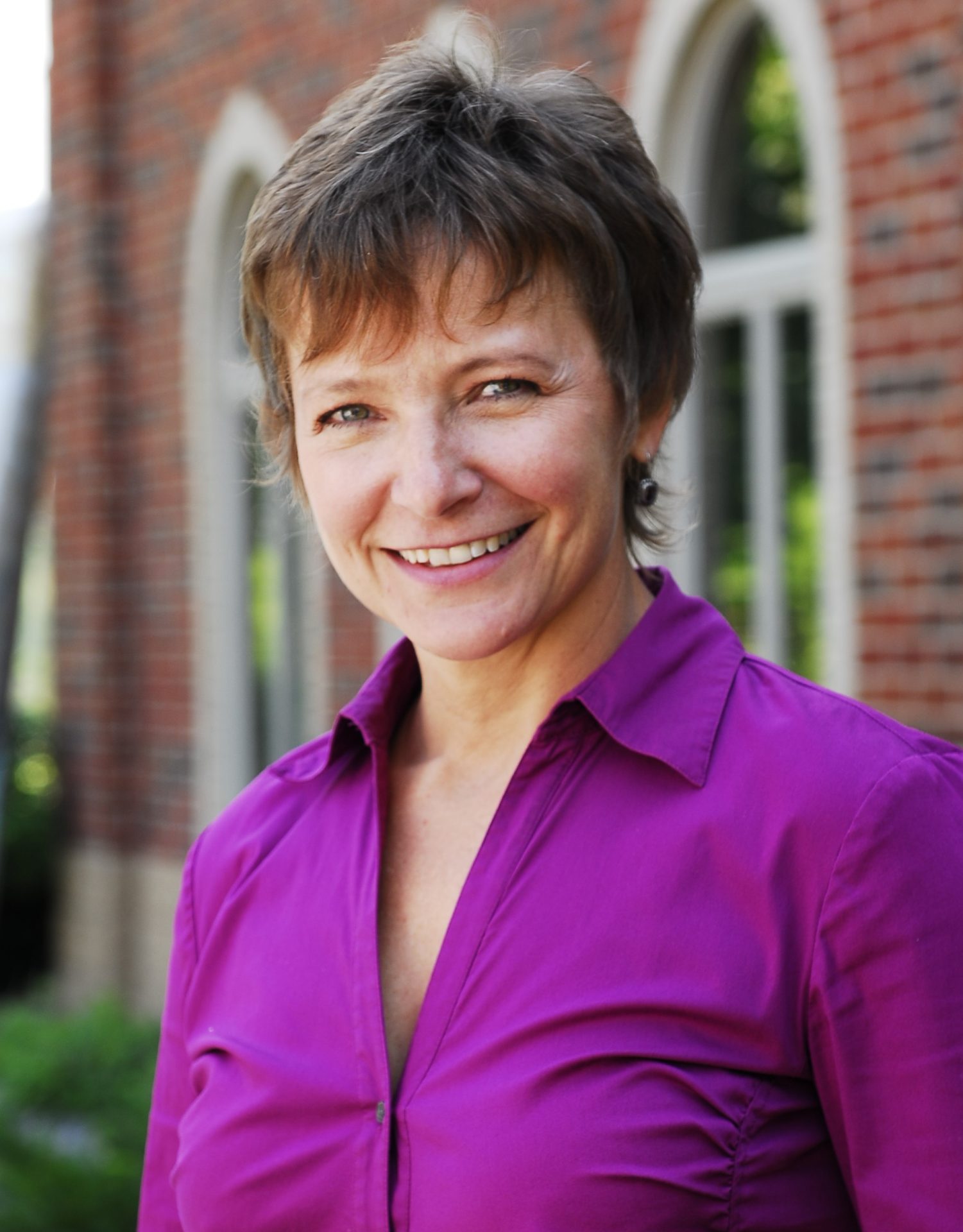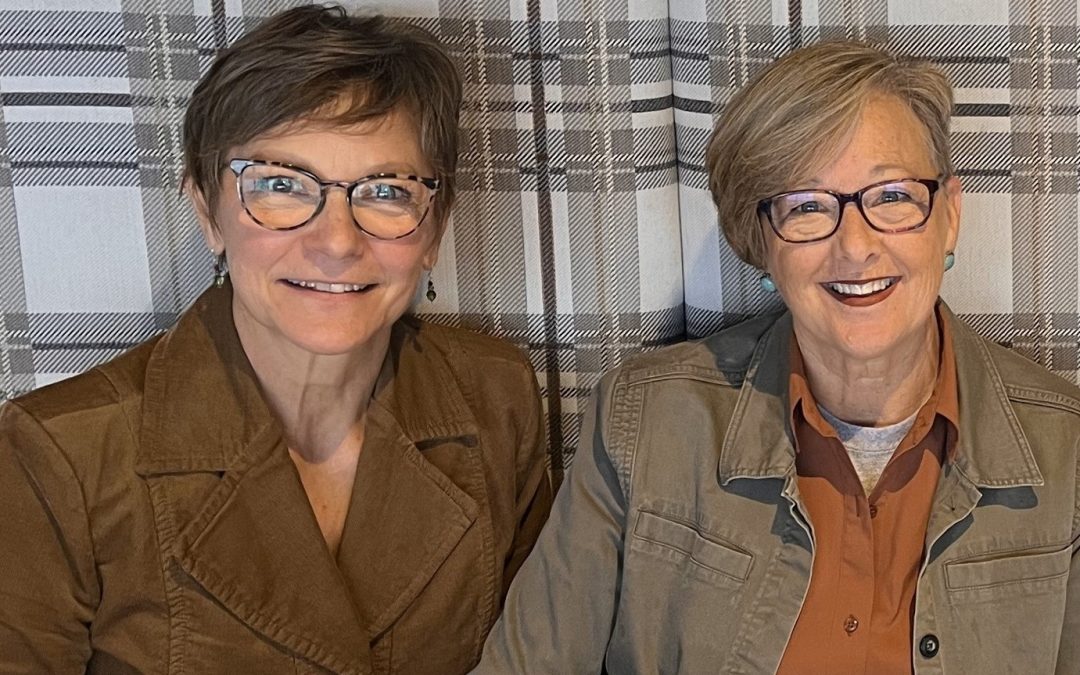Our Legacies magazine is a special anniversary publication, celebrating our history, the people we have supported, and those who have made our mission possible all these years. Here is one of our stories:
Ellen Timmerman-Borer is Chief Development Officer and started in 1982. Sue Walker is Chief Program Officer and joined Hammer in 1977. They both began as counselors in the dormitory. Here, they share a few memories from the early days of their careers.

Sue Walker
SUE: I was thinking about some of the people we’ve supported all these years. Many came to us as young children. Their families had been told by doctors in the 1950s, ‘60s, and ‘70s to put them in a state institution, which some did. Others, who had heard about Hammer Residences and the work we were doing, made the bold decision to move them here. At the time, we were caring for children aged 7 and up. Their parents had the foresight and the bravery to do this even if it meant sending their children really far away from home.
James was one of those children. He came to Hammer when he was 11 years old from an institution in Rockford, Illinois. He had basically been rejected in his community. James moved to the original Hammer School, and he found it to be so much more personalized and fun and he was getting an education. Today, at age 86, James is the longest-supported person at Hammer.
ELLEN: I’m thankful we were able to provide a new home and a new experience for so many children and families from that era. We were continuing Alvina Hammer’s belief that children with disabilities deserved to live in a loving home environment where they could flourish.

Sue with Michael, when he was supported by Hammer
Hammer is known for being an innovator as a disabilities services provider. Can you share an example of that?
SUE: I started out in the Annex, which was the farmhouse that sat on the property where our West Central Office is now. One of the new innovative things we were doing was an apartment training program in the late ‘70s, early ‘80s. We had nine people who lived in an apartment building on the campus, and they were working on independent living skills so they could live in an apartment in the community. They could also be involved in activities with people from the dorms. Over time we started to get them out into the community. We got them YMCA memberships and connected to arts and crafts and theater and whatever activities they were interested in. It was so important to help people feel connected to the community.
What are some of your favorite memories from your career at Hammer?

Ellen Timmerman-Borer
ELLEN: On one of my first days of work at the dorms, I was responsible for taking a small group of guys to a church festival in Long Lake at St. Georges Church. It was Kelly, and I believe Mark and David, and Don. There was a band playing and food and games. It was crowded and loud. Well, we go to get hot dogs and the guys all had their money pouches and I’m waiting while they pay for their hot dogs. Pretty soon I look around and there’s no Don. Oh great, first week of work and I lose somebody at a church festival. I look around and around. Then I see him on the stage with the country western band, playing the drums. Oh my gosh, what was he doing up there? But it wasn’t a problem—it was where he belonged. It was who he was. He was a musician, and the band knew him from the community and embraced him. That was a lovely lesson for me right at the very beginning.
SUE: I remember our Recreation Director at the time, Fred Witzgall, wrote a spoof on The Wizard of Oz. He enlisted a whole group of employees to make it happen, from costumes to rehearsals. People from the dorms and two or three group homes played the various characters. They acted out the script, were video recorded, and the performance was turned into a feature movie that won an award for the best amateur comedy at the MN Video Convention in 1988. We had a “movie premiere” and everyone got dressed up and got to walk the red carpet. It was so much fun and very creative. Another movie, Hammer Trek, was produced in 1996. Both movies aired on local public television, and everyone involved took great pride in their roles.

Ellen with Kelly, who was supported by Hammer for many years
ELLEN: It was this interesting evolution of how to engage people in hobbies and things that interested them, which, when you think about it, people came from an institution where they were considered valueless to our community. The idea that they might have a hobby or an interest in something, or that they could contribute to the community was kind of cutting edge. The recreational aspect of what we did was one way we were valuing people.


If you’ve ever wondered why HAMMER is the amazing organization it is, this exchange with Ellen & Sue explains so much. Never has the old adage, “Angels disguised as humans,” been truer!